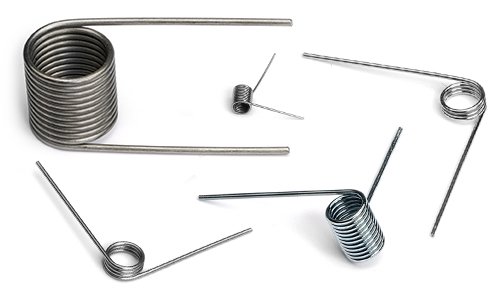Preventing Torsion Spring Failure

Torsion springs are a mechanical type spring that works by exerting torque or twisting force when it is twisted along its axis. When the rotating point is turned, the spring stores energy by twisting, and when the rotating force is released, the spring unwinds and releases the stored energy. This process and operation of a torsion spring is very effective but if not designed correctly, can lead to spring breakage and failure.
So what are the common reasons a torsion spring breaks or fails? Torsion springs are designed to withstand a large number of cycles of twisting and untwisting, but over time they can become weakened and eventually fail due to a variety of factors.
Some common causes of torsion spring failure include:
- Fatigue: This is the most common cause of torsion spring failure. As the spring is repeatedly twisted and untwisted, it can become weakened and eventually break. The number of cycles a spring can withstand before failure depends on its design parameters and the material it is made of.
- Corrosion: Torsion springs that are exposed to moisture or corrosive chemicals can experience corrosion, which can weaken the material and lead to failure.
- Overloading: If a torsion spring is subjected to too much force or torque, it can become deformed or break. This can occur if the spring is not properly designed for the load it is subjected to.
- Improper installation: If a torsion spring is not installed correctly, it can become misaligned or experience uneven loading, which can cause it to fail prematurely.
- Wear and tear: Over time, the surface of a torsion spring can become worn down due to friction with other components. This can cause the torsion spring to fail, particularly if it is not lubricated regularly.
To prevent torsion spring failure, it is important to properly design, install, and maintain the spring according to the specific requirements of the application. Regular inspections and lubrication can also help to prolong the lifespan of the spring. Need help designing a torsion spring for your application? Contact an experienced Lee Spring Engineer today for technical advice and assistance.






 Sign Up/Log In
Sign Up/Log In



